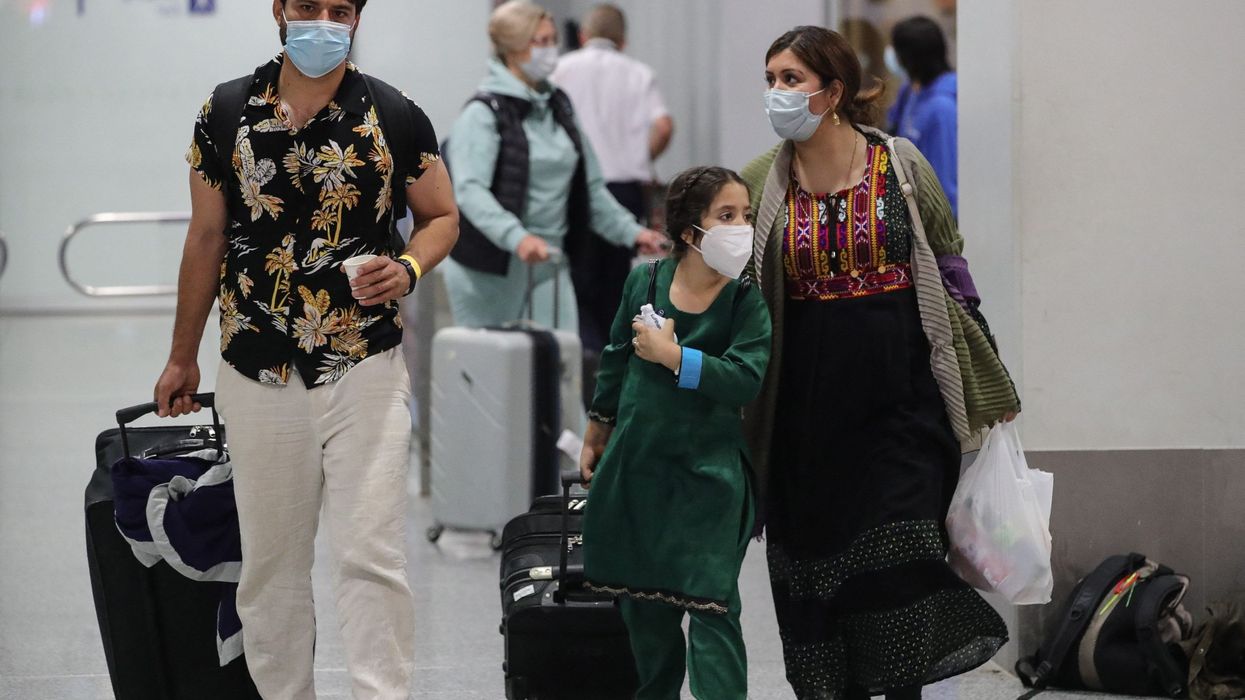With the Taliban returning to power in Afghanistan, foreign nations are scrambling to get their citizens and Afghans who worked with them out of the country.
Here is a round-up of the latest developments:
- US banks on 'safe passage' -
The United States is looking to get thousands of its citizens out of the country before an August 31 deadline, saying the Taliban has guaranteed them safe passage.
So far, the US has taken out roughly 3,200 people on 13 flights but around 11,000 US nationals remain.
Thousands of US soldiers are at Kabul's airport, the Pentagon planning to ramp up flights of its huge C-17 transport jets to as many as two dozen a day.
State Department spokesman Ned Price hinted that the country might keep some diplomatic staff in the country after August 31.
- Dutch blocked -
The first Dutch evacuation flight reportedly left Kabul without a single Dutch national on board after passengers were blocked by US troops.
"The Americans were guarding the gate. I showed my passport and said I was Dutch," a man told Dutch media outlet NOS.
"After saying three times that I was Dutch, he told me to keep my distance otherwise he would shoot. I decided to leave. I didn't want to risk being shot."
Foreign Minister Sigrid Kaag said the Americans gave the plane 30 minutes on the tarmac before ordering it to leave, and pleaded for the US to "give us more time".
Kaag is reportedly in talks with the Americans to avoid a repeat of the incident.
But the Netherlands did manage to evacuate its first nationals on Wednesday, with 35 on board a plane headed for Georgian capital Tblisi, the Dutch defence ministry tweeted.
- French embassy emptied -
Most people who had sought refuge in the French embassy in Kabul have now been taken out of the country, with almost 200 Afghan nationals among those airlifted out overnight on Tuesday.
"Nearly 200 Afghans who worked for France or who are under threat have just been evacuated from Kabul, as well as French and foreign nationals," President Emmanuel Macron tweeted, adding that operations would continue.
Those taken out overnight included 25 French nationals and 184 Afghans "from civil society in need of protection", French officials said.
- European exodus -
Britain was leading the European exodus, with more than 300 nationals flown out so far along with more than 2,000 Afghans.
"UK officials are working round the clock to keep the exit door open," Prime Minister Boris Johnson said.
Germany said Wednesday it had brought around 500 people out of Afghanistan, including 202 Afghans, as the cabinet approved a mandate for up to 600 soldiers to be deployed to Kabul to help with the evacuation mission.
Other European nations were scrambling to follow suit, with Spain and Poland pressing into service three military planes each.
Turkey said Wednesday one of its aircraft left Kabul with more than 200 Turkish nationals onboard, adding to more than 300 that left earlier in the week.
And an Italian flight carrying 86 people landed in Rome Wednesday, with another 150 expected to depart Kabul.
Switzerland and Ireland said they were still trying to work out how to get their nationals out of the country -- with around 30 citizens of each country having said they needed to leave.
"We're relying on the US in particular to secure safe passage through Kabul airport," said Irish Foreign Minister Simon Coveney.
Denmark said it had flown out 14 Norwegians and one person with a Danish residency permit, and had also evacuated 84 people, mainly Afghan employees, from Kabul on Wednesday.
Norway said it had flown out 14 of its nationals: five embassy staff and nine Norwegians who had been working at a US field hospital at Kabul airport. They are still trying to get an unspecified number of Afghan staff and their families out of the country.
- India's Taliban escort -
India's diplomats took a rocky road to the exit -- they eventually asked the Taliban for an armed escort to the airport, taking five hours to make the five-kilometre (three-mile) journey from the embassy.
India had been a staunch ally of the ousted Afghan government, so nerves were jangling among the 150 nationals and diplomats gathered at the now-closed mission.
But as the first of nearly two dozen vehicles drove out of the embassy late on Monday, some of the heavily armed Taliban fighters waved and smiled at the passengers.
One guided them towards the street leading out of the city's green zone and on the main road to the airport. The escort managed to clear crowds from the roads and get the convoy to the airport.




